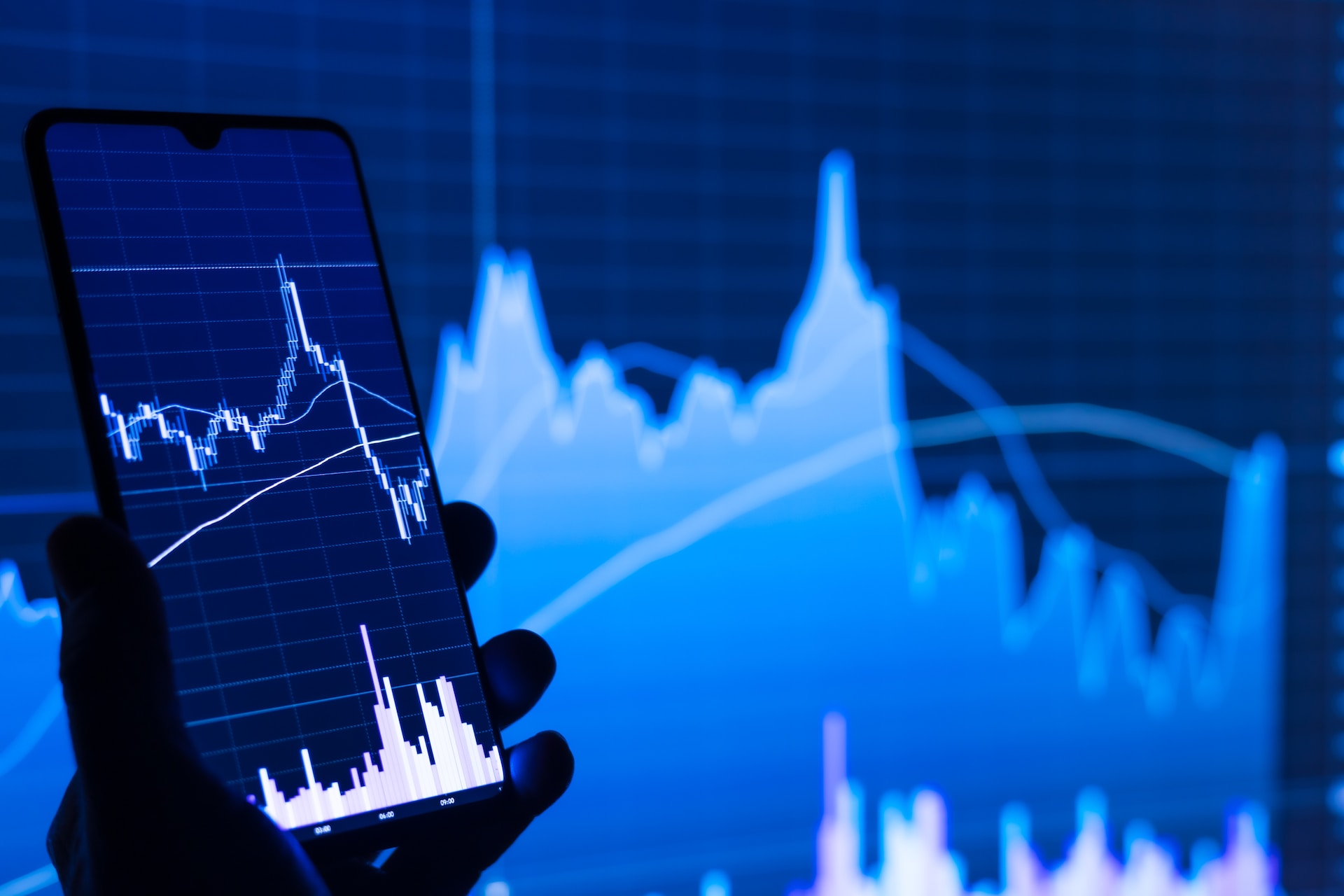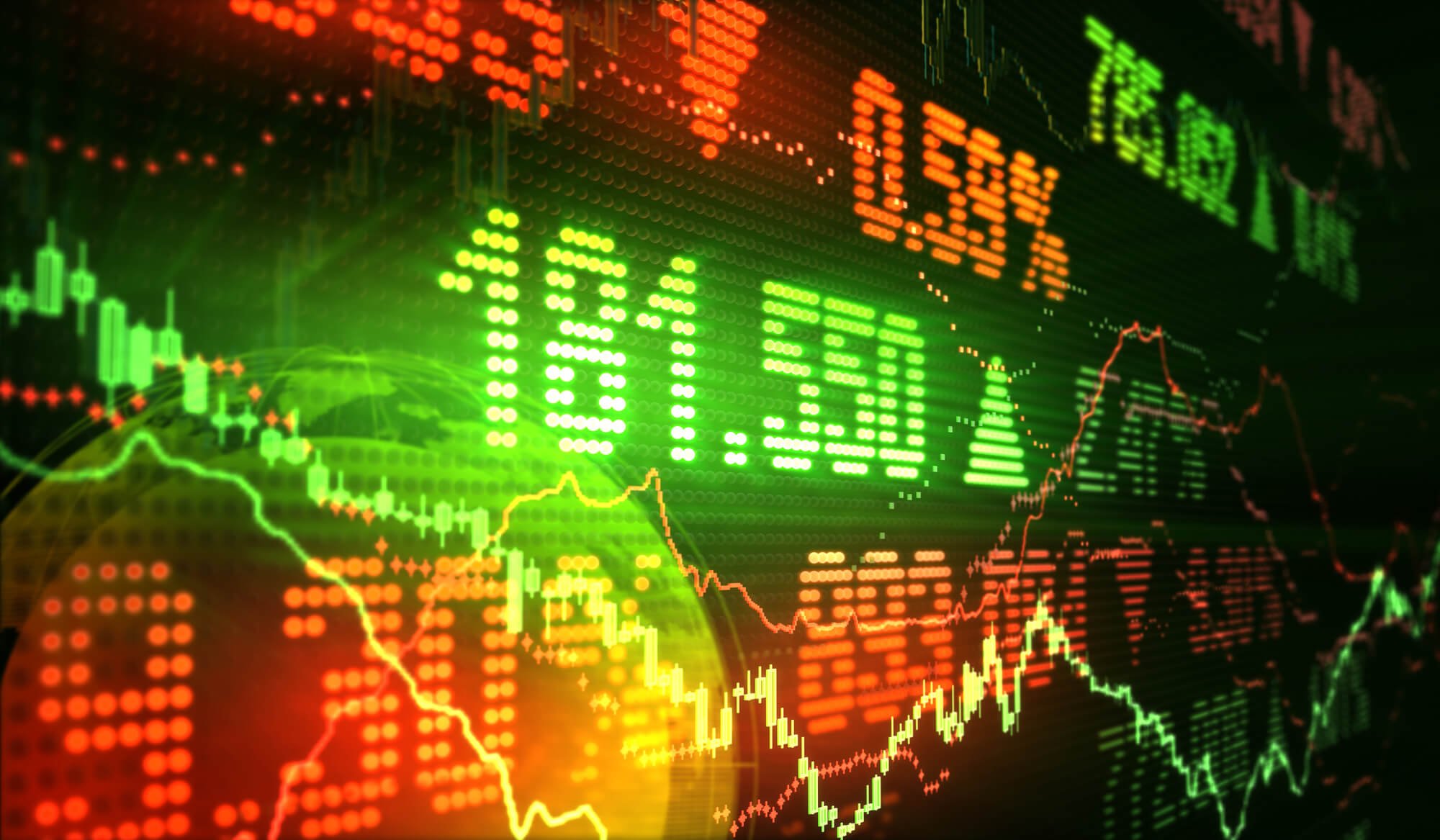With artificial intelligence now intertwined with daily life, investors may wonder about the prospect of AI stock market prediction. Of course, while AI has made considerable gains in creating, researching, and fact-finding, predictive analytics is another animal altogether.
Considering the popularity of ChatGPT, Gemini, Meta AI, and other modules, it’s helpful to know how AI analyzes data to create investment scenarios and predictions. The AI era is still in its early stages, and many more developments can be expected before it becomes a truly universal tool. That makes caveats about AI especially pertinent.
So how accurate are AI stock market predictions? Can they form a significant share of your investment strategies? Gorilla Trades looks deeper to find some answers.

What Role Does AI Currently Play in Finances?
Stock market watches have researched, examined, calculated, and delivered investment predictions for decades. The arrival of the internet ramped up their research abilities considerably.
Some stock market researchers used AI for years before it was made widely available to the public. Now, the advent of consumer AI has resulted in another revolutionary transformation.
How is AI stock market prediction faring so far? According to one study, hedge funds powered by AI earned cumulative, three-year returns of 34% from 2017 to 2020. By comparison, overall hedge fund gains for that time frame were around 12%. However, this was institutional usage of AI, just predating the commercial arrival of ChatGPT.
How is AI deployed now by consumer users? One medium for AI trading systems is the robo-advisor. The first one was developed around 2010, but robo-advisors really came into prominence toward the middle of that decade.
The robo-advisor asks questions about the investor’s financial status and future goals. In doing so, it uses algorithms to generate strategies and make automatic investment decisions that are completely untouched by human influence.
In recent years, the growth of machine learning in finance has risen sharply. Machine learning allows AI to improve its data processing and pattern recognition. Natural language processing helps AI consume and analyze huge amounts of data for use in predictive analytics.
How AI Stock Market Predictions Are Made
How does AI complete stock market forecasting? The first step is giving it data — and lots of it. Financial reports, news articles, social media conversations, earning reports, and more get fed into AI systems to measure market sentiment. From there, AI generates predictions about where a certain commodity’s prospects are.
Stock market algorithms also power high-frequency trading. This is what allows modern investors the chance to make instantaneous trades and take advantage of the slightest change in share prices. As you might expect, this has helped many a day trader reap instant gains at a turbocharged speed.
AI has also made technical analysis — a crucial part of stock assessment — incredibly quick and thorough. It can review all of the most in-use technical indicators, from moving averages to Bollinger bands, to spot the best entry and exit points for different positions.
AI models can evaluate historical market trends as well. The goal here is to predict market changes and potential volatility and then fine-tune investors’ portfolios to enhance risk management and diversification.
Advantages of AI Stock Market Predictions
If you have access to a reliable AI stock prediction module, here are some of the most salient benefits.
Speed and Accuracy
AI is only going to get faster. Even now, it can analyze great amounts of data and metrics to make instant assessments of growing patterns and stock prices. As machine learning takes hold, the accuracy of these analytics is likely to gradually improve.
Better Risk Management
AI can identify market patterns and potential scenarios that impact share prices and determine risks that are lingering in your portfolio. As it constantly watches the markets, AI can also make it easier to perform risk management or even micro-management.
Cost-Effectiveness
One benefit of automated processes in general is that they’re fairly inexpensive. They handle routine duties, generate information, execute trades, and make predictions for a fraction of what it would cost to hire a human. This frees investors up to make more strategic decisions about their investments.
Real-Time Analysis
By monitoring media and market indicators, AI can offer instant information on current market sentiment. This can put investors at a distinct advantage when developing their strategies to emulate market trends — possibly even bringing them one step ahead of other market watchers.
Personalized Approach
AI responds to users’ financial priorities and goals to find approaches tailored to each investor. This can help them identify unique opportunities that different types of investors will react to favorably.
Potential Risks of AI Stock Market Predictions
AI is expected to improve as time goes on. However, there are still some possible drawbacks to relying on it to make stock predictions and other transactions.
Over-Reliance on Historical Metrics
AI deploys a lot of data, most of it based on historical information. While that’s certainly a fair metric to use, the stock market trade is in a constant state of dynamic change in market conditions and unexpected events (partly thanks to AI). Overusing historical data can establish a false sense of security that results in poor decisions.
Lack of Transparency
Stock market algorithms are enormously complicated. They can be so convoluted that they become impossible for everyday investors to comprehend.
When AI makes a stock prediction that appears to run contrary to common sense, it may arouse feelings of mistrust in investors who don’t know how algorithms work — namely, a large share of the investor population.
No Human Input
Gorilla Trades does rely on technology to make a lot of our assessments. But there’s more to accurate analysis than just chewing up reams of electronic data, including the following:
- Educated intuition (not reactionary sentiment)
- Context of market conditions
- Unprocessable external factors
- Straight-up human judgment
AI can’t always simulate those human evaluation skills accurately.
Potential for Error
Especially because it’s an industry still in its infancy — at least to the public — AI is prone to inaccuracies and errors, particularly in volatile market conditions. If these errors arise and are allowed to proliferate, it could result in disastrous market decisions. For that reason, AI still needs to be closely monitored.
How Should Investors Approach AI Stock Market Predictions?
For the time being, and possibly for the rest of your life as an investor, you should view AI stock prediction as one part of your investment toolbox. Even though it’s come a long way and has overtaken the marketplace, AI is still growing and building.
Its role in stock market analytics may grow, even exponentially. But it likely will never entirely replace other technical indicators and human analytical skills. Investors are better advised, then, to study traditional fundamental analytics themselves, including:
- The financial health of commodities
- Earnings reports
- Cash flow analysis
- Price-to-earnings ratios
- Debt-to-earnings ratios
AI can provide great access to huge amounts of information, but it can’t replace human judgment and contextual analysis. AI may be automated, but it shouldn’t be considered an automatic total alternative.
It’s exciting to watch the development of AI as it pertains to the investment community. Even with its rapid ascent in recent years, though, the technology is best approached as another arrow in your investment quiver — not the bow.

Gorilla Trades: Natural Intelligence for Stock Success
Gorilla Trades uses the latest technology to find winning stock opportunities while also using our deep investment background to put our stock picks in context. If you’d like to learn more, sign up for a trial and get one month’s worth of free stock alerts.




